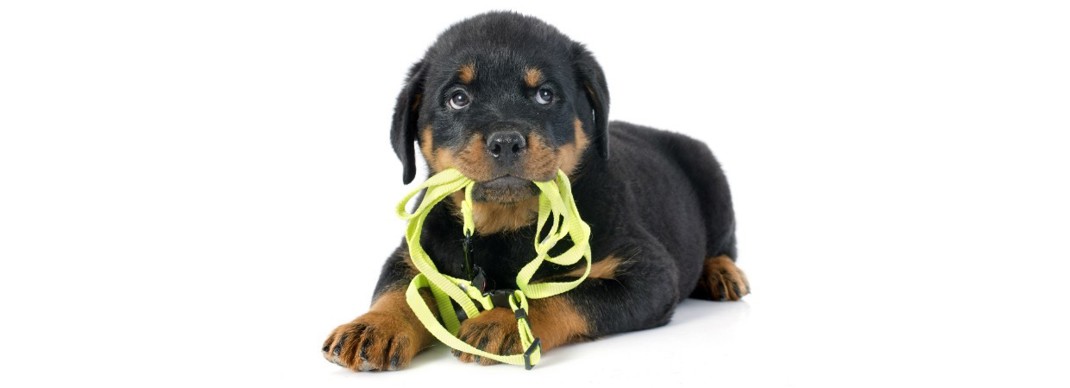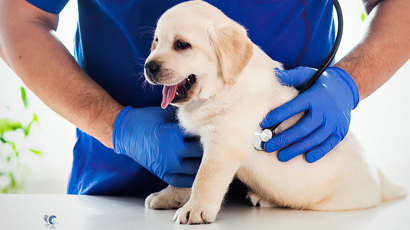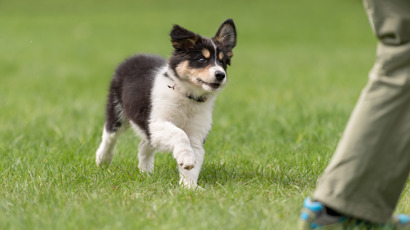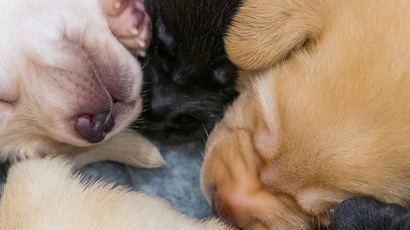Taking your Puppy Outside

When it comes to pets in public spaces, there’s a whole raft of unspoken etiquette rules that, when observed, make life easier for everyone. Words Fiona Park.
Taking your New Puppy Out and About is Great!
Smelling the fresh air, exploring new areas, or just watching the world go by – and it’s even better when you can take your canine BFF along for the ride. At the same time, it’s important to remember that public spaces are shared spaces, and others want to enjoy them, too.
Most of us are aware of the basics for going out and about with your puppy.
Go prepared with the necessaries:
- Water and a bowl
- Treats and toys - like chicken jerky treats for dogs and puppies (puppy food is probably not the best idea for outdoors),
- Poo bags and paper towels,
- And a mat to lie on if visiting a café with cold, hard floors
- Clean up after your dog’s accidents and eliminations.
- Be attentive to your pet’s needs and moods, and take action before it acts up out of boredom, nervousness, stress or fatigue.
- Be considerate of others sharing a space with your dog.
- Be health conscious. If your pet is unvaccinated or ill, avoid areas with other dogs (although it's best to stick to the dog vaccination schedule)
As well as these basics, is thinking about etiquette with other dog's and dog owner, to help to oil the cogs of our interactions, and prevent us from getting into awkward situations. As humans, we’re generally pretty well versed on the rules of etiquette between people; but, when we bring our pets into the mix, the waters can get a little murky.
For starters, the presence of cute, friendly looking animals can cause some people to throw the social code out the window in favour of unsolicited familiarity. Others, however, prefer not to engage with dogs at all.
And as a dog owner, you want to ensure that your pooch feels happy and secure.
To help demystify the many unspoken rules of public pet conduct, we talked to Liz Clough, qualified dog trainer and owner of Auckland business K9 Services NZ Ltd, about the do’s and don’ts of everyday canine situations.
Taking your Puppy to the Dog Park
Although dog parks are one place where your pooch is able to run freely with others of its kind, they are still shared spaces, and other visitors need to be respected. The notion of leash-free cavorting can lead to excited, erratic behaviour, so it’s best to stay away until you’re confident of your pup’s ability to come when called.
It can also help to exercise your pooch prior to hitting the dog park, so that it’s not full of pent-up energy.
While at the park, keep an eye on your pet at all times and make sure that it’s playing nicely with other visitors – stop your dog if play gets too rough, and give newcomers time to settle in before approaching.
Taking your new Puppy for a Walk
Footpaths can be narrow, so be sure to leave enough room for others to pass by. A leash is a must, even if you’re sure of your dog’s obedience – not everyone you meet will be fond of dogs, and this will give them a sense of security.
If you happen upon others out walking their dogs, be cautious in the approach, and get permission before allowing your pet to greet theirs. Keeping the lead tension loose will let your pooch know that you’re not nervous about the new dog, but abide by the three second rule – meet for three seconds and move on. Be prepared to step in at once if something goes awry – take cues from the dogs’ body language.
If heading to public places like beaches and national parks, check with the local council that the area is dog friendly.
Taking your Puppy to Cafés and Restaurants
Many eating establishments with outdoor areas have no problem with a well-behaved dog joining its human for a spot of lunch or coffee, but always check with staff before settling in. Take note of what’s within range of where you’re looking to sit, and try to avoid spots that are crowded or rowdy, or where there are rambunctious children or other dogs. Attach the leash to something secure – preferably to yourself, or something that can’t be dragged away should the dog become startled.
The best time to visit a café with your dog is at the end of a walk and after a feed, as it will be much happier to lie down for a nap or quietly occupy itself with a toy.
If your dog won’t settle down, and is bothering others with barking or nosing around, it’s time to leave.


